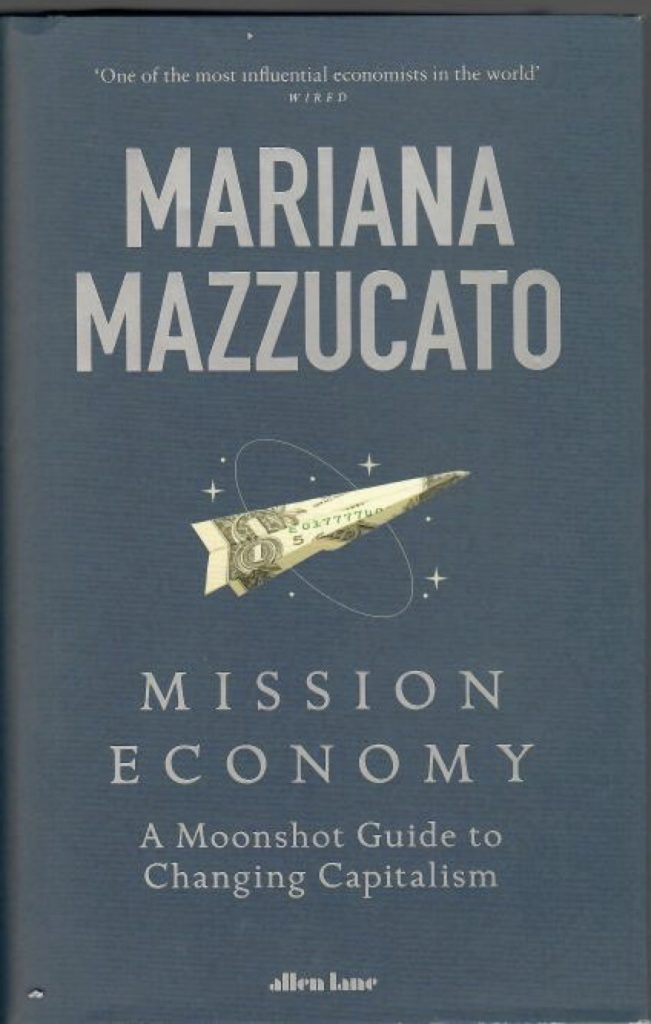In her latest book, economist and advisor to politicians around the world Mariana Mazzucato argues that governments should actively shape markets instead of only “repairing” them in emergencies, as mainstream economists advise.
Book review: Dietmar Schobel
“Capitalism is, indeed, in crisis.” These are the words of economist Mariana Mazzucato, who was born in Italy and grew up in the USA.A closer look at the human and environmental consequences of the current economic system, which focusses solely on maximising profit, leads unavoidably to the same opinion. Nevertheless, she adds: “But the good news is that we can do better.” As a professor at University College London, founder and director of the UCL Institute for Innovation and Public Purpose, and advisor to the European Commission as well as to many authorities and governments ranging from Finland and Scotland to South Africa, in her latest book “Mission Economy – A Moonshot Guide to Changing Capitalism” she describes her view of what really matters.
Capitalism is, indeed, in crisis. But the good news is that we can do better.
MARIANA MAZZUCATO, AUTHOR, ECONOMIST AND ADVISOR TO POLITICIANS AROUND THE WORLD

First and foremost, the state and its representatives need to (re-)adopt a more courageous and self-confident role. She objects to the assumption that states and their authorities usually behave like “bureaucracy monsters”, mostly obstructing the innovative force and risk appetite of private companies. And she writes that, in the past, fundamental renewal has consistently only been possible with the help of state investment. One example is the Defense Advanced Research Projects Agency (DARPA), the United States Department of Defense research organisation which created the basic technical fundamentals for the internet. Another is the million-dollar loans for Elon Musk’s e-vehicle company, Tesla. And then there are the equally high subsidies for the research and development work of pharmaceuticals companies.
The risks are borne by the state
Actually, writes the author, nowadays it is usually the state that bears the major financial risk of innovations, and additionally bails out large companies when turbulences arise – such as in the banking crisis. And so, in future, the state should not restrict itself to “repairing” markets, but needs to shape them so they are oriented on a specific mission. Upcoming major schemes that need to be implemented in this way to benefit the economy and society include the Green New Deal, achieving affordable healthcare for all, and reducing the digital chasm between those who have good access to the internet and those don’t.
An orientation on missions instead of cost-benefit analyses, which have usually only paralysed real progress, is a basic principle of her approach. The United States Apollo Mission, whose goal was specified in 1962 by President John F. Kennedy as putting a man on the moon by the end of the decade, is used by Mariana Mazzucato as a model of the kind of courage and innovative force that are necessary again today in order to deal with the major challenges facing the 21st century. You don’t necessarily have to be a space enthusiast to be able to understand the detailed and easily readable argumentation presented in her book. The author explains that she is not intending to “pit public institutions against the private sector”. Rather, the mission must be to redefine the interface between them – working towards a sustainable and socially compatible form of economic activity.

Mariana Mazzucato: “Mission Economy. A Moonshot Guide to Changing Capitalism”. Allen Lane, London 2021, 272 pages, €22.49
